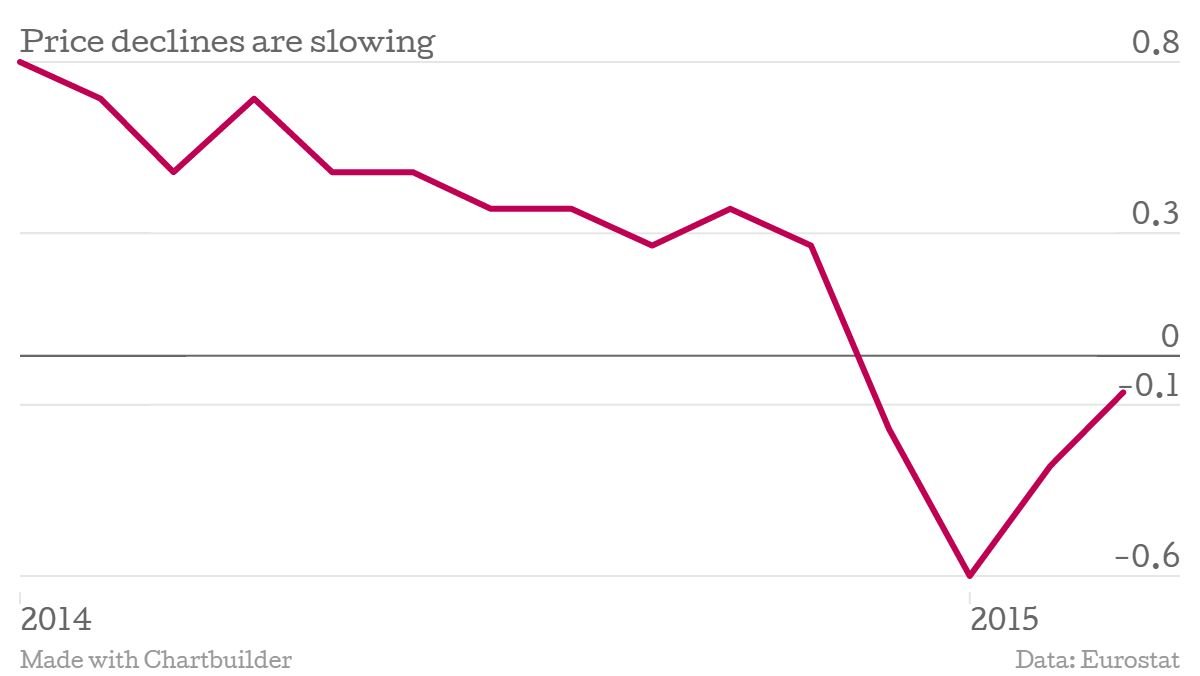Eurozone deflation: Consumer prices fell 0.1 per cent in March

While inflation in the Eurozone fell for a fourth consecutive month in March the rate of decline slowed again, meaning it's even closer to returning to inflation.
Consumer prices fell 0.1 per cent in March in line with analysts expectations, and up from -0.3 per cent last month, according to a flash estimate from Eurostat, the European Commission's statistics bureau.
But core inflation, which strips out the most volatile sectors such as food and energy, fell slightly to 0.6 per cent, down from 0.7 per cent a month earlier, painting a mixed picture for the single bloc.
There's been a smattering of brighter economic data out of the Eurozone recently. Consumer confidence rose for the fourth month straight this month to its highest level since mid-2011. Retail sales rose at the fastest rate in over nine years in January, showing low prices aren't causing consumers aren't to delay purchases just yet.
The European Commission predicts that the Eurozone economy will grow by about 1.3 per cent this year, suggesting it's on course to avoid falling into a prolonged bout of deflation and economic stagnation.
The economy is expected to benefit from low oil prices, which fell as low as $45 per barrel in January. Additionally the European Central Banks €1.1 trillion (£800bn) debt-buying programme will be a boon. And it'll also be helped by the euro, which slid to a seven-year low against the pound earlier this month, making its exports more competitive internationally.
